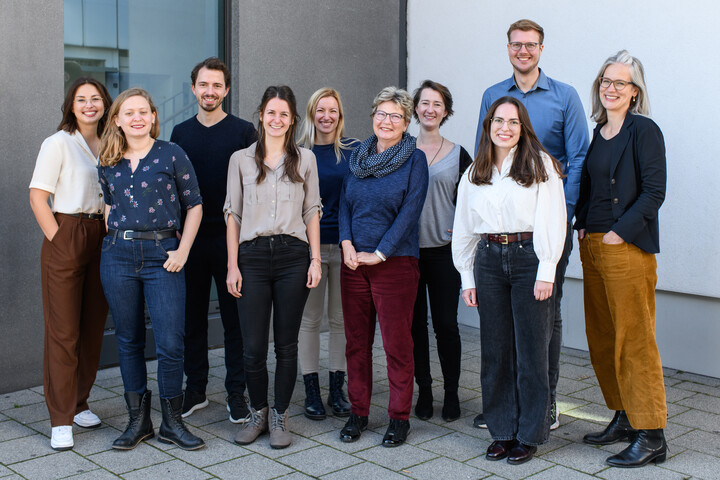Chair of Health Psychology

Prof. Dr. Jutta Mata
Research suggests that up to 70% of human disease is preventable. In countries such as Germany, chronic-degenerative diseases are the main causes of a diminished quality of life and premature death. A healthy lifestyle, such as regular physical activity, a balanced diet, or abstinence from smoking are key factors in the prevention of these diseases.
The Chair for Health Psychology aims to understand the factors underlying health and disease and experimentally test prevention and intervention approaches to maintain and promote health.
We use the tools of the psychological and computational social sciences: We combine observational and experimental methods in our research, including studies in our experimental “kitchen” laboratory, survey methods, computational methods, data synthesis methods such as meta-analyses, and field studies, to investigate all aspects of health psychology and behavior.
The Chair of Health Psychology currently has four main research foci:
Prof. Dr. Jutta Mata is Professor of Health Psychology and associate researcher of the Mannheim Center for European Social Research, at the University of Mannheim. Jutta Mata is also an associate researcher at the Center of Adaptive Rationality at the Max Planck Institute for Human Development in Berlin. She is a member of the “People, Climate, Sustainability” interest group of the German Psychological Society (DGPs), member of the Scientific Advisory Board of the German Institute for Economic Research (DIW) and member of the board of trustees of the Leibniz Institute for the Social Sciences GESIS. She is the chair of the Scientific Advisory Board of the Socio-Economic Panel (SOEP). Since 2024 she has been Vice-President for Research and Career Paths in Academia at the University of Mannheim.



